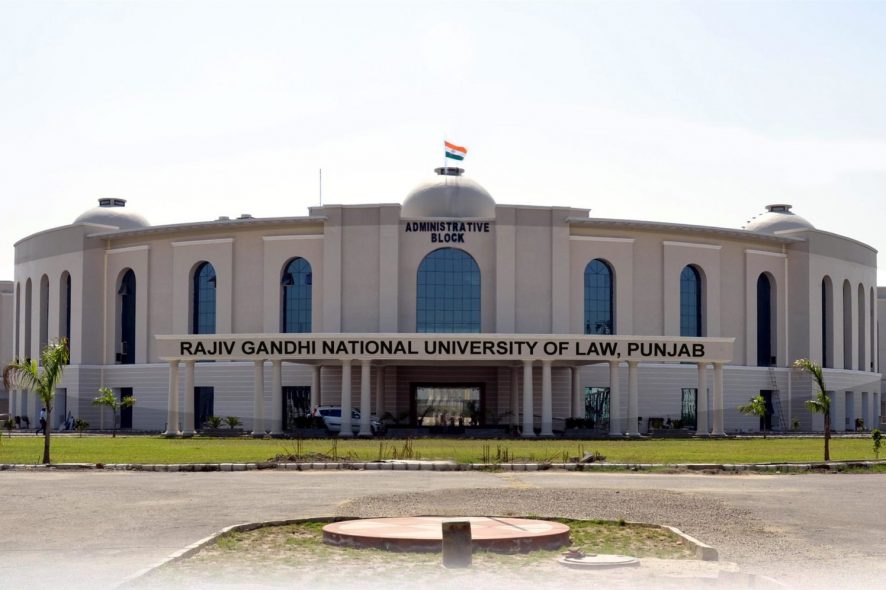Centre for Alternative Dispute Resolution Call for Blogs
The Editorial Board of the Centre for Alternative Dispute Resolution, RGNUL (CADR-RGNUL) invites blog posts from legal practitioners, academics, research fellows, undergraduate and postgraduate students.
About the University
The Rajiv Gandhi National University of Law is a National Law University located in Patiala, Punjab, India. It was established in 2006 by the Punjab Government as a university dedicated to the field of Legal Education.
About the Centre
The Centre for Alternative Dispute Resolution, RGNUL (CADR-RGNUL) was established in the year 2018 as a Centre dedicated to research and capacity-building in ADR. One of the foremost aims was to fill voids that plague existing literature and bridge the often-daunting gap between the academia and practicalities of a career in ADR.
About the CADR Blog
The CADR Blog is aimed towards integrating insights from the professional and the academic world. To that extent, the Blog publishes articles on contemporary issues plaguing and developing in ADR.
Call for Blogs
CADR is initiating a cycle of discourse, debate, and deliberation on ADR Mechanisms such as Arbitration (Commercial & Investment), Mediation, Negotiation, and Conciliation through the medium of articles. A few general themes that are in focus are:
- INVESTMENT ARBITRATION
1.1. Commercial Arbitral Awards as Investments in Investment Treaty Arbitrations.
1.2 State-Owned Enterprises as Claimants in Investment Treaty Arbitrations.
1.3 Participation of Amicus Curiae in Investment Treaty Arbitrations:
1.3.1 Ability to raise extra-jurisdictional issues vis-à-vis public interest
1.3.2 Confidentiality concerns
- COMMERCIAL ARBITRATION
2.1 Domestic Commercial Arbitration
2.1.1 Unilateral Appointment of Arbitrators: Party Autonomy v. Equity
2.1.2 Challenges to unilateral appointments after active participation in proceedings
2.1.3 Section 16 of the Arbitration and Conciliation Act, 1996
2.1.4 Hybridization of the UNCITRAL rules into practical institutional models and the road ahead.
2.2 International Commercial Arbitration
2.2.1 Dispute Resolution Clauses as Practices and Usages: An analysis in the context of the CISG and the Unidroit Principles of International Commercial Contracts.
2.2.2 The intersection of CISG and Arbitration Agreements: A holistic understanding
2.2.3 Should the law of Seat be preferred over CISG for formation of arbitration agreements?
2.2.4 Conflicts between Arbitration Statutes and CISG
- MEDIATION
3.1 Comments on the Draft Mediation Bill, 2021
3.1.1 Party Autonomy and Mandatory Pre-Litigation Mediation
3.1.2 Viability of Countrywide Community Mediation
3.2 The Singapore Convention on Mediation and its potential role in the rise of Institutional Mediation in India
- CONCILIATION
4.1 Practical Challenges to the widespread adoption of Conciliation
4.2 Is Conciliation more practical than Mediation?
4.3 Is Conciliation ideal for jurisdictions with Inquisitorial systems of Dispute Resolution?
- ONLINE DISPUTE RESOLUTION
5.1 Online Dispute Resolution: A temporary stopgap, or the way of the future?
5.1.1 Is a permanent online setup, such as the one adopted by the Income Tax Appellate Tribunal viable for other quasi-judicial mechanisms?
5.1.2 Seoul Protocol: Pros and Cons
General Submission Guidelines:
- Co-authorship is limited to a maximum of two authors.
- All submissions must be in Times New Roman, font size 12, and Spacing 1.5.
- Word limit for all submissions is between 800 – 1500 words. This stipulation is, however, flexible at the Editor’s discretion in exceptional cases.
- All submissions should be accompanied by a cover letter specifying the author’s name, designation, institute, contact number, and email address for future reference.
- All entries should be submitted in .doc or .docx format.
- The submissions must be original, unpublished, and an outcome of the author’s own efforts. The authors must also include a declaration as to the bona fides of their submission in their email. A sample declaration to that effect can be: “The article is an original work of the author(s). I(We) certify that my(our) submission is original, has not been published elsewhere, and is not under review or consideration elsewhere.”
- Authors must acknowledge and give due reference to any source. Plagiarism is strictly prohibited, and articles found to be plagiarized will not be considered for publication.
- On submission, authors shall be deemed to have divested the copyright to CADR. However, all moral rights shall vest with the author(s).
Submission Deadline
We will not accept submissions beyond January 7th, 2022. All submissions must be emailed to submissions.cadr@rgnul.ac.in with the subject “Blog Submission for CADR Blog: [Name of Article]”.
Contact Details
For any queries, please contact the Editorial Board at submissions.cadr@rgnul.ac.in.







